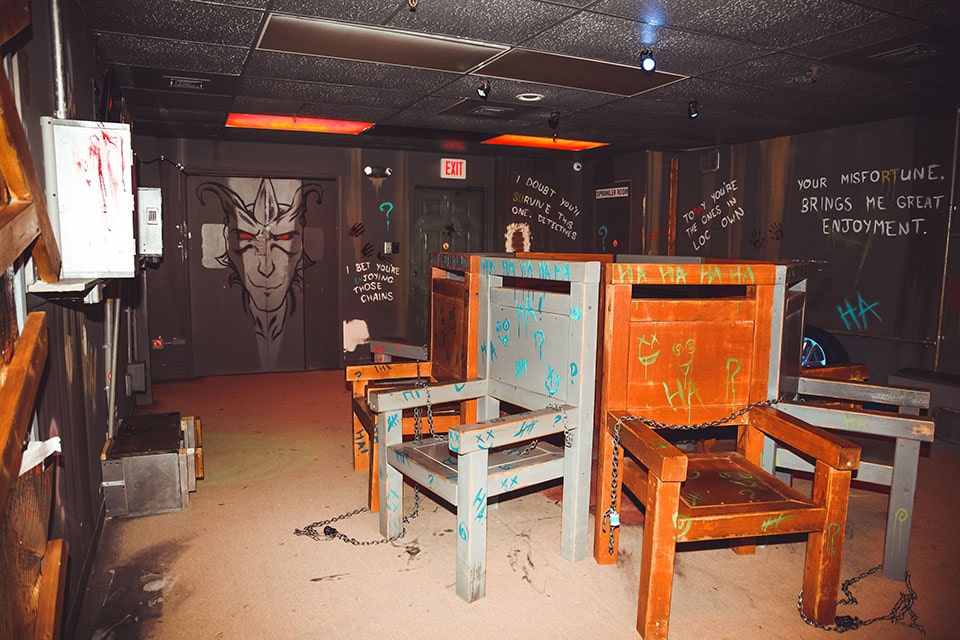Best Escape Room Experience-- Exciting Gamings and Puzzles for Teams
Best Escape Room Experience-- Exciting Gamings and Puzzles for Teams
Blog Article
Group Methods: Exactly How to Collaborate Effectively in a Getaway Room
Navigating the complexities of a retreat space necessitates greater than plain interest; it requires a well-coordinated strategy based in clear communication, calculated duty projects, and experienced time management. Teams should proactively listen per member's understandings, designate duties that align with specific toughness, and keep normal check-ins to make sure focus and stop redundancy. By promoting an atmosphere that values cohesion and flexibility, teams can dramatically enhance their effectiveness and success rates. The subtleties of these methods can change the experience, yet exactly how exactly can they be carried out to make best use of the possibility for success?
Establish Clear Interaction

To promote clear interaction, it is important to assign a main factor of contact for information circulation. This function includes summarizing searchings for and suggested techniques to make certain everyone continues to be on the same page. Furthermore, taking on a methodical method to conversations can protect against disorderly exchanges. As an example, quick, focused updates from each staff member can maintain the group notified without frustrating them with information.

Designate Roles Tactically
While clear communication establishes the foundation for effective team effort, designating roles strategically makes sure that each staff member's strengths are made use of efficiently. In a getaway space circumstance, the time-sensitive and complex nature of obstacles necessitates a well-organized method to task delegation. By recognizing and leveraging specific expertises, groups can optimize their analytic capacities and enhance general performance.
Someone with a keen eye for detail may succeed in finding covert items, while a rational thinker could be better matched to resolving challenges. This role often requires solid business and social skills.
Second, make sure that functions are versatile and adaptable. As new challenges emerge, the team should have the ability to pivot, reallocating tasks as called for. This adaptability assists keep energy and protects against bottlenecks that could take place as a result of rigid role projects.
Inevitably, a critical strategy to duty job not only makes best use of the strengths of each staff member but also cultivates a cohesive setting, driving the group in the direction of an effective escape.
Make Use Of Diverse Abilities
Recognizing and harnessing the diverse abilities within your team can substantially elevate your efficiency in an escape space. Each staff member brings distinct staminas to the table, and effectively leveraging these abilities can expedite problem-solving and enhance overall performance. A group participant with solid analytical skills might excel at figuring out complicated codes or patterns, while one more with keen empirical capabilities might swiftly identify hidden ideas that others may overlook.
Motivate team participants to voice their insights and concepts quickly, making certain that all potential solutions are thought about. Additionally, assigning tasks that straighten with each member's toughness can prevent traffic jams and guarantee that progression is constant.
In addition, diversity in abilities commonly converts to variety in believing designs, which is very useful in a getaway area setup. While some obstacles might call for logical reasoning and accuracy, others may take advantage of creative and association of ideas. By identifying and leveraging this variety, groups can resolve a broader variety of difficulties better, thereby raising their possibilities of an effective getaway.
Manage Time Effectively

First, assign initial mins for a fast survey of the space. Recognize visible problems and split tasks based on staff member' toughness, guaranteeing that nobody is idle. Establish interior time checkpoints to examine development occasionally; as an example, goal to have half the problems fixed by the mid-point of the video game. This method can aid maintain the team concentrated and protect against time from escaping undetected.
Additionally, stay clear of passage vision. If click over here now a puzzle is taking as well long, rotate employee or proceed to one more obstacle, returning later on with fresh viewpoints. Interaction is critical-- keep everybody updated on fixed puzzles and remaining jobs to stay clear of repetitive initiatives.
Lastly, make use of any kind of hints or clues sparingly but tactically - best escape room. Understanding when to request assistance can save important time. By sticking to these time monitoring concepts, teams can considerably enhance their chances of an effective and pleasurable escape room experience
Debrief and Reflect
Reflection is an important facet of group advancement and enhancement in the context of escape rooms. When the challenge is completed, whether efficiently or not, it is essential for the group to involve in a structured debriefing session. This process enables employee to examine their efficiency, identify staminas, and pinpoint locations for enhancement.
Start the debrief by discussing what went well. Highlight particular circumstances of reliable interaction, analytic, and partnership. Recognizing these favorable actions enhances them and encourages navigate here their rep in future obstacles.
Discuss minutes of confusion, miscommunication, or ineffective methods. Encourage an open and positive discussion where group participants can share their perspectives without concern of criticism.
Final Thought
In conclusion, successful partnership in an escape room is asserted upon clear communication, critical role assignments, the effective utilization of diverse skills, and efficient time administration. By developing a natural and adaptive team setting, the chance of efficiently solving challenges and achieving the purpose of running away the room is substantially enhanced.
Report this page